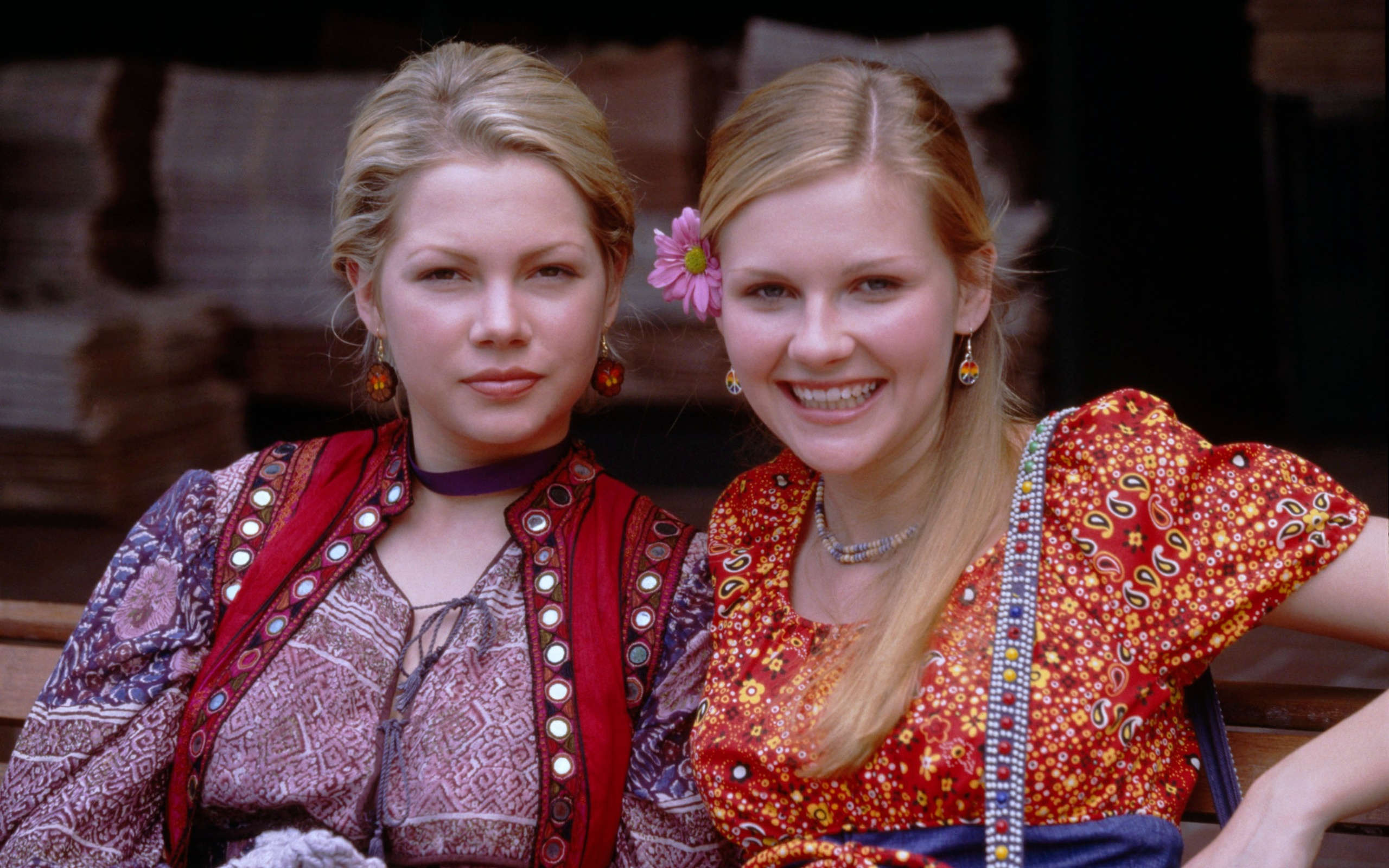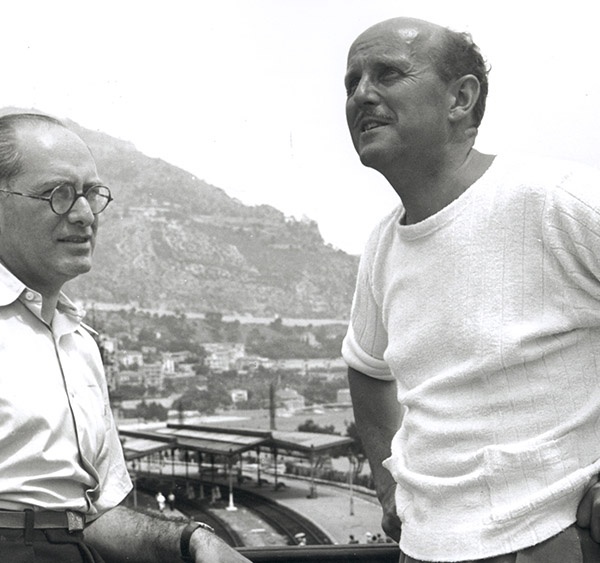“It’s gonna be different now. They’ll never lie to us again.”
It seems odd to start at the ending of “Dick,” the 1999 Watergate satire starring Kirsten Dunst and Michelle Williams and now celebrating its 25th anniversary. But those final lines, spoken by Dunst’s Betsy to Williams’ Arlene, the teen girl duo whom the movie posits as the real political masterminds behind the Deep Throat informant that helped bring down Richard “Dick” Nixon, hit different when rewatching “Dick” in the current political climate.
“It always got a knowing laugh,” said director Andrew Fleming, speaking to IndieWireduring the same week of the assassination attempt on Donald Trump’s life and President Joe Biden announcing he was not seeking reelection, instead endorsing his Vice President Kamala Harris as the Democratic nominee.
“We knew at the time that that was meant to be a joke,” said screenwriter Sheryl Longin, who co-wrote the script with Fleming. “I’m sorry that we were right.”
Fleming and Longin never set out to make a political satire. As Fleming said, “The [demographic] of people who are [interested in teenage girls and political thrillers] is nil.” For this reason, the film was primarily pitched at Dunst and Williams’ contemporaries, who had just seen Dunst in the similarly toned “Drop Dead Gorgeous“weeks before, and religiously watched Williams as “Dawson’s Creek”bad girl Jen Lindley. The absurd satire was likely over that audience’s heads, with Variety’s review noting that it would appeal to an older audience closer to Arlene and Betsy’s age at the time — it certainly was over mine when I watched “Dick” as a child. This is reflected in the modest opening weekend haul of $2.2 million for a total of $6.3 million domestic gross on a $13 million budget.
Fleming and Longin, who went to sibling schools in Los Angeles during the time of Watergate and orbited one another for years during adulthood before finally connecting on “Dick,” always knew they wanted to center on the teen girls and the oftentimes absurd reality of the 1970s.

Longin even brought her own childhood experience of throwing ice cubes at a Secret Service agent from a Florida hotel balcony during Nixon’s stay there — and being terrified that she was going to be arrested, echoes of which can be detected in Betsy and Arlene’s interactions with the Secret Service in the farcical “Dick.”
During the height of the Vietnam War and Nixon’s unpopularity, Betsey and Arlene’s school goes on a field trip to the White House, where they get separated from the group and happen upon President Nixon and his lackeys, some of whom the girls recognize from the night before at the Watergate building, where Arlene lives. To placate the easily distractible duo, Nixon offers them a job as Official White House Dog Walkers to his pet Checkers. Through their after-school employment, they are privy to all manner of intel, such as adog-eaten Committee to Re-Elect the President list and the infamous Watergate recordings — the missing 18.5 minutes of which are taped over by Arlene serenading Dick to an Olivia Newton-John song. Betsy and Arlene pass these smoking guns onto those “radical muckraking bastards” — the Washington Post reporters who eventually broke the story, Bob Woodward (Will Ferrell) and Carl Bernstein (Bruce McCulloch). In lieu of getting in trouble with their parents, Betsey and Arlene give the reporters the name Deep Throat, after the popular porno Betsey’s brother was caught watching.
“We both grew up in this period in which our first political memory was watching Watergate on TV,” Longin said. “Our parents were shocked by it, but for us it was like, oh, so politicians lie. That was our awakening to it. It shaped our worldview. It’s so different now. It wasn’t even as different when we were writing it.”
The time in which Longin and Fleming were writing “Dick” just so happened to coincide with another watershed moment in politics: the Monica Lewinsky scandal. Longin said one studio wondered if they could update it to present day and have them meet President Clinton in a chat room instead. The director and writer shot that down immediately. Any similarities in Arlene’s crush on Nixon in the movie to any former presidents’ alleged connection to Jeffrey Epstein are purely coincidental.
“The crush that she has on him is very chaste and not sexualized,” Fleming said.
“We assumed that he was completely clueless about that,” said Longin, making an unknowing reference to the eponymous Dick portrayer, Dan Hedeya, who also played Cher Horowitz’s father in “Clueless.”
Though Hedaya plays Dick as somewhat more likable than the actual disgraced president, who Fleming called “terrible,” he believes it worked because “essentially, Nixon was a comedic character. He was kind of a loser who just kept trying and ended up being president.”

“It was an embarrassing period in politics but… it wasn’t a tragedy. It was just something humiliating and completely avoidable,” Fleming said.
Could you ever make a comedic satire like “Dick”about the current state of politics today, and Trump specifically? Can we ever laugh at this period in history?
“I’m sure the story will be told in a variety of ways. It’s such a bizarre time. We think of Watergate and we were all kind of confused and disillusioned by it, but it’s so much more confusing and disillusioning now,” Fleming said. “It’s hard for me to laugh at it, except occasionally when it is hilarious. The fact that Roe v. Wade was reversed is not hilarious. So many things like that aren’t hilarious.”
Fleming, who most recently has been working on “Emily in Paris,” and Longin assured that they aren’t entertaining any thoughts about writing a sequel, but if they were, when would it be set?
“There’s very little mystery to politics anymore,” Fleming said. “Every little thing turns up on the news, turns up on Instagram, turns up on TikTok, becomes a Saturday Night Live sketch. There’s this echo chamber; this funhouse mirror thing.”
“We didn’t sit down to write a story about Richard Nixon,” Longin said. “I wouldn’t want to write a political movie.”
“’Dick’ was a story about two girls,” Longin concluded as to why the movie still resonates 25 years later despite the markedly different yet somehow “Dick”-esque funhouse mirror reality we live in. “For me, that movie is sort of the end of the ’90s,” Longin said.





